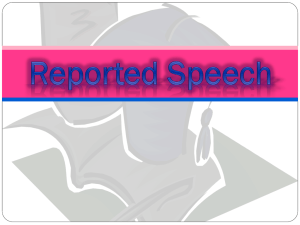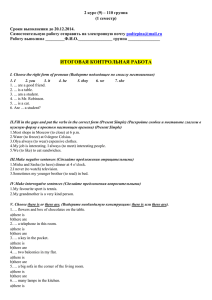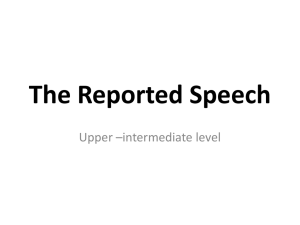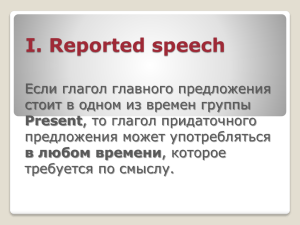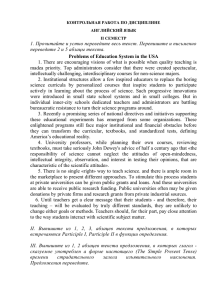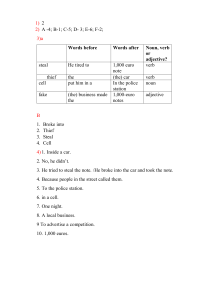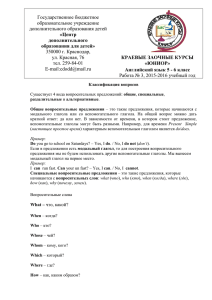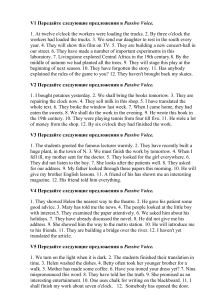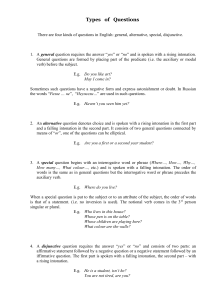TYPES OF QUESTIONS IN ENGLISH
реклама
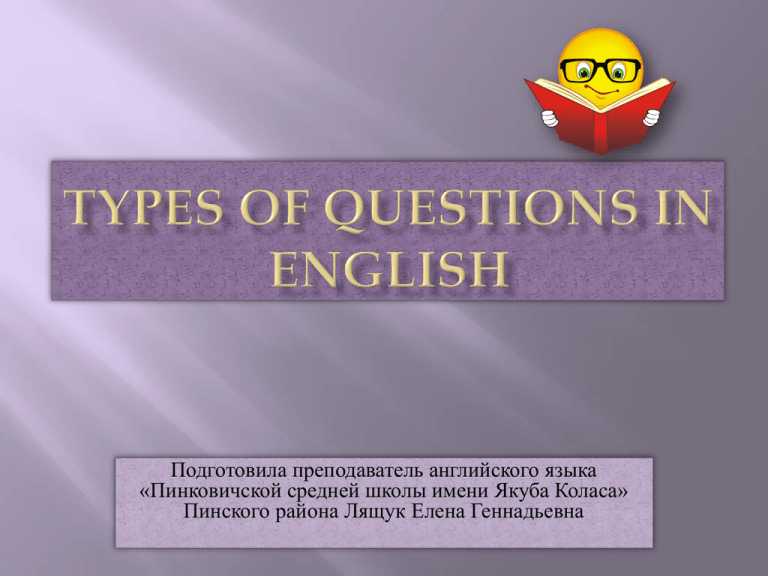
Подготовила преподаватель английского языка «Пинковичской средней школы имени Якуба Коласа» Пинского района Лящук Елена Геннадьевна YES/NO QUESTIONS SPECIAL QUESTIONS SUBJECT QUESTIONS QUESTION TAGS ALTERNATIVE QUESTIONS (questions without questions words, questions are usually formed by changing the word order; this means the auxiliary or modal verb comes before the subject). Can she type? Will you help me? 1 2 3 4 Auxiliary verb (вспомогательный глагол) subject (подлежащее) object (сказуемое) Will you help additional parts of the sentence (второстепенные члены предложения) me? (start with a question word) Who did you go out? Where did you meet her? What is your name? Who-кто? Where-где? What-что? When-когда? Why-почему? How-как? Whose-чей? 1 2 Question auxiliary word(вопроси verb(вспомога тельное слово) тельный глагол) Where did 3 4 5 Subject(подле жащее) Object (сказуемое) you meet additional parts of the sentence(втор остепенные члены предложения) her? (If who, which or what are the subject of the question) subject object Harry loves Jane. Who loves Jane? Subject object Marry helped George. Who did Mary help? 1 2 Begin with “who, what, which…” Начинаются с «who, what, which…» Who Direct word order Прямой порядок слов loves Jane? (We use them for confirmation of or agreement to our statement. We form question tags with an auxiliary verb and a personal pronoun.) He can drive, can’t he? 1 2 Direct word order (прямой порядок слов) “a tag” (хвостик) He can drive, can’t he? 1 2 + He can drive, He can’t drive, can’t he? + can he? Begin with an auxiliary verb + “or” Does he help you every day or every other day? 1 2 3 4 5 6 Auxiliary verb (вспомогательн ый глагол) subject (подлежащее) Object (сказуемое) “or” (или) Does he help additional parts of the sentence (второстепенн ые члены предложения) you every day additional parts of the sentence (второстепенн ые члены предложения) every other day?
